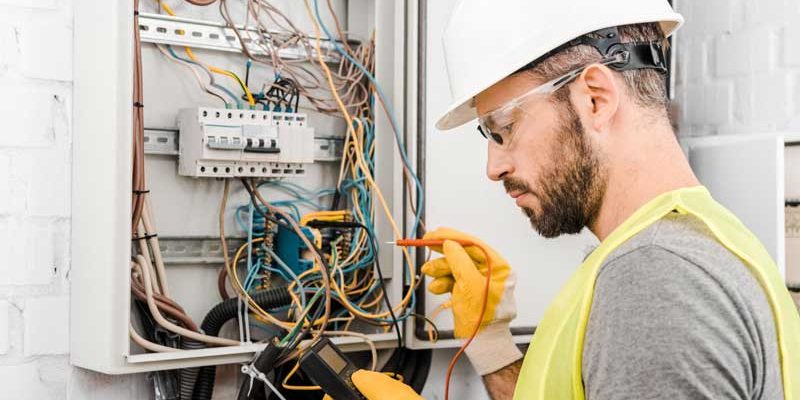Electrical systems are the backbone of modern society, powering everything from homes to industries. However, like any infrastructure, they require regular maintenance to function safely and efficiently. Electrical maintenance is not only crucial for preventing accidents but also for optimizing energy usage and minimizing downtime. Below, we’ll delve into the importance of electrical maintenance and outline key practices to ensure the longevity and reliability of your electrical systems.
Electrical Maintenance: Ensuring Safety and Efficiency
Importance of Electrical Maintenance
- Safety: Ensuring the safety of occupants and workers is paramount when it comes to electrical systems. Regular maintenance helps identify and rectify potential hazards such as faulty wiring, overloaded circuits, or damaged equipment before they escalate into serious accidents like fires or electrocutions.
- Compliance: Adhering to electrical codes and standards is mandatory for both residential and commercial properties. Regular maintenance ensures that your electrical systems meet regulatory requirements, avoiding penalties and legal liabilities.
- Efficiency: Well-maintained electrical systems operate more efficiently, reducing energy waste and utility costs. Periodic inspections and tune-ups can identify inefficiencies like voltage fluctuations or power factor issues, allowing for corrective measures to be implemented.
- Reliability: Unplanned downtime due to electrical failures can be costly for businesses, leading to lost productivity and revenue. Scheduled maintenance helps identify and address potential points of failure, minimizing the risk of unexpected outages.
Key Practices for Electrical Maintenance
- Regular Inspections: Conduct routine visual inspections of electrical equipment, including wiring, switches, outlets, and circuit breakers. Look for signs of wear, damage, or overheating, and address any issues promptly.
- Testing and Calibration: Periodically test electrical systems using appropriate instruments to ensure they are operating within specified parameters. This may include voltage measurements, insulation resistance tests, and ground fault detection.
- Preventive Maintenance: Implement a preventive maintenance schedule based on manufacturer recommendations and industry best practices. This may involve cleaning, lubricating, and tightening electrical components to prevent corrosion and ensure optimal performance.
- Training and Education: Ensure that personnel responsible for electrical maintenance receive proper training and certification. Equipping them with the necessary knowledge and skills not only enhances safety but also improves the effectiveness of maintenance procedures.
- Documentation: Maintain detailed records of all maintenance activities, including inspections, tests, repairs, and upgrades. This documentation serves as a valuable reference for future maintenance efforts and helps demonstrate compliance with regulatory requirements.
Electrical maintenance is essential for safeguarding lives, property, and business operations. By prioritizing safety, efficiency, and reliability, organizations can minimize risks, reduce costs, and prolong the lifespan of their electrical systems. Whether you’re a homeowner, facility manager, or industrial operator, investing in regular maintenance is a prudent decision that pays dividends in the long run. Remember, when it comes to electrical maintenance, prevention is always better than cure.


